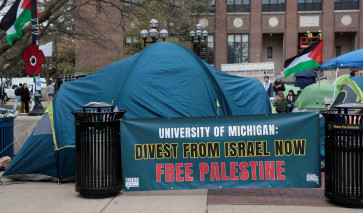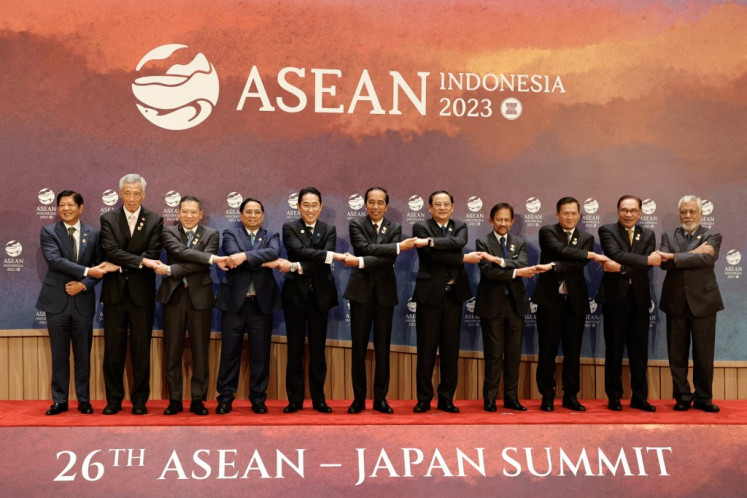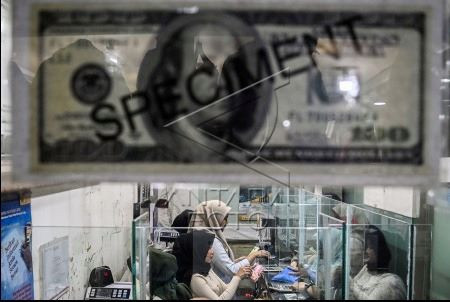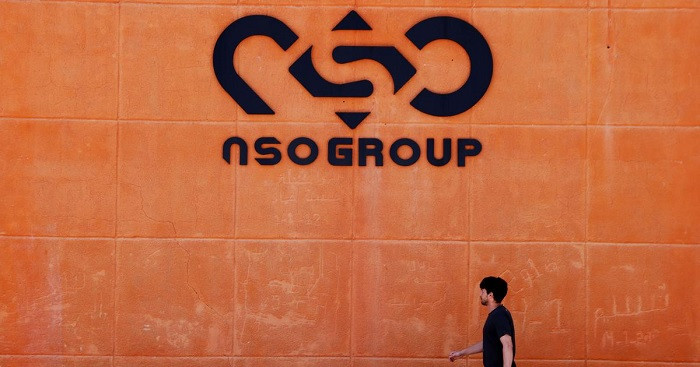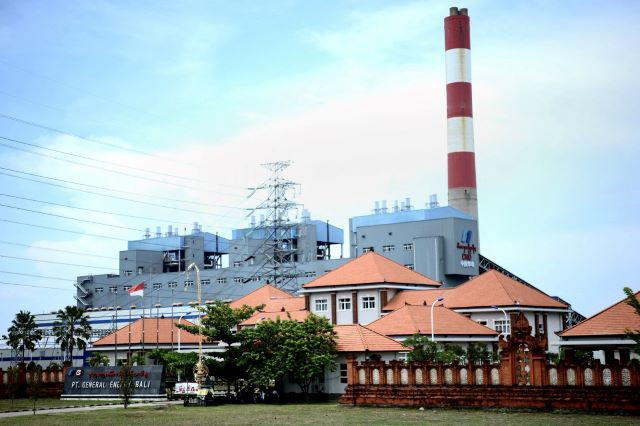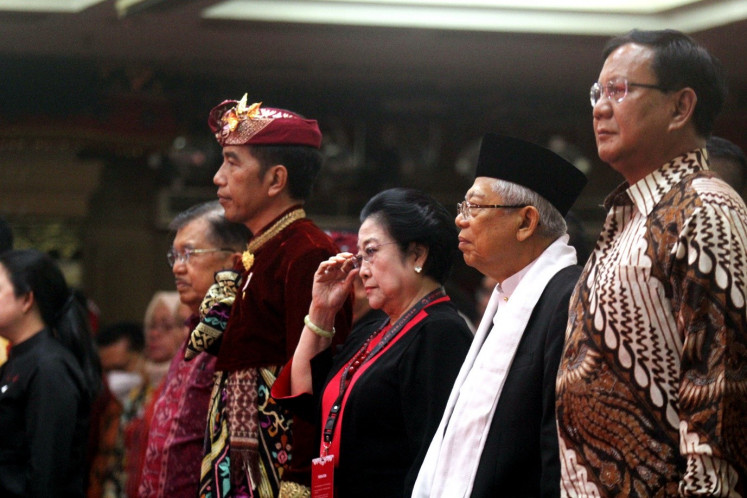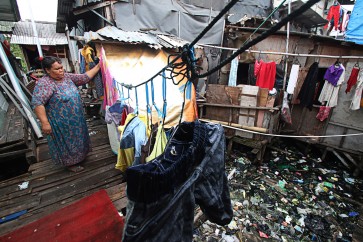Can democracy counter economic inequality?
According to a World Bank study, only 20 percent of Indonesians benefitted from the growing economy during the last decade, while 80 percent — or about 205 million people — were left behind.
Change Size
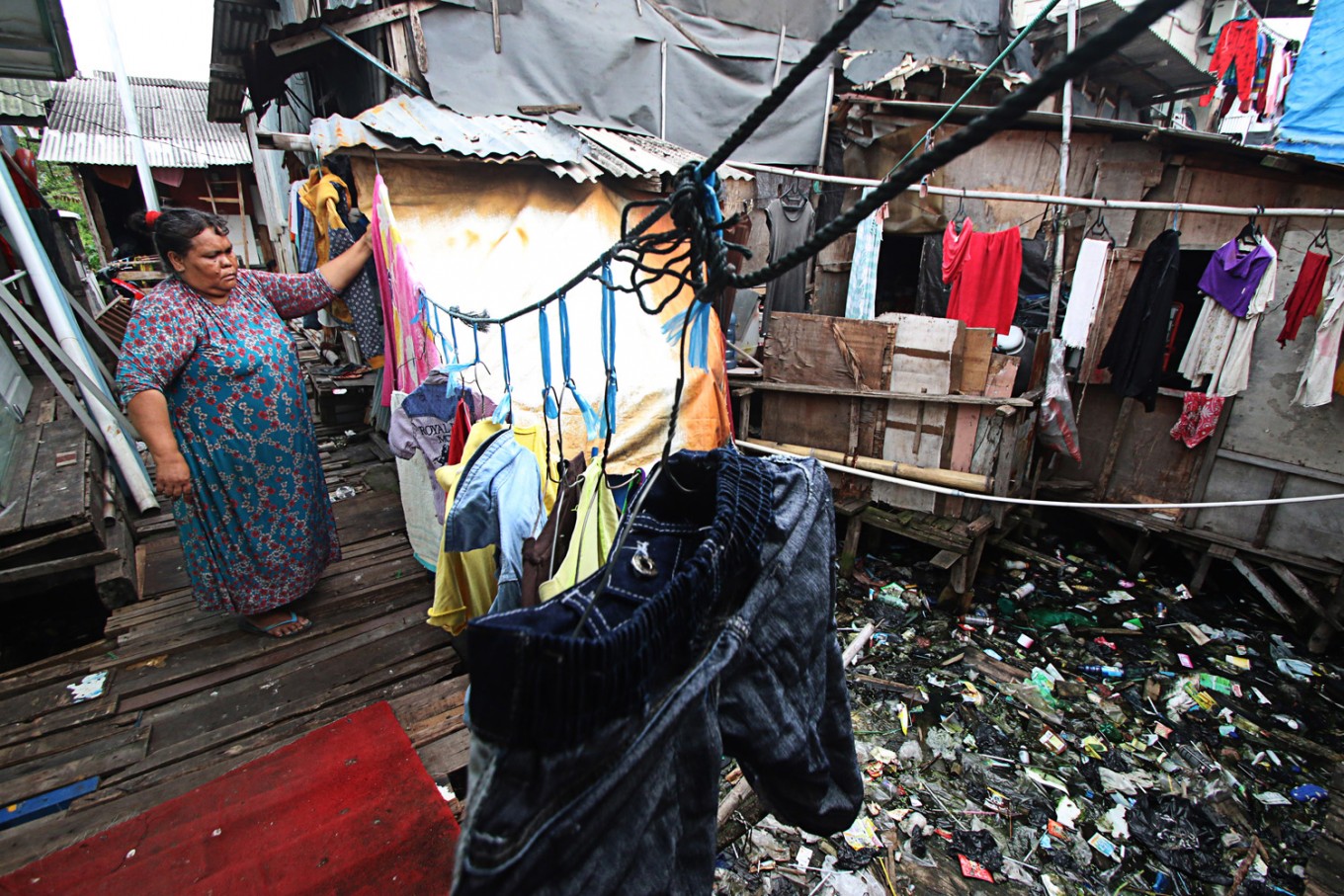 Urban poor – A resident carries out her daily activities in a slum area in Kapuk Teko, Jakarta. (Antara/Rivan Awal Lingga)
Urban poor – A resident carries out her daily activities in a slum area in Kapuk Teko, Jakarta. (Antara/Rivan Awal Lingga)
A
ddressing inequality among citizens is one of the most important challenges that democracies like Indonesia faces today. According to a World Bank study, only 20 percent of Indonesians benefitted from the growing economy during the last decade, while 80 percent — or about 205 million people — were left behind. According to the Central Statistics Agency (BPS), wealth disparity has narrowed slightly in Indonesia.
This development is attributed to several matters, including rising earnings among Indonesia’s middle-income segment. Likewise, government-led laborintensive infrastructure projects have played a part in this development.
On Dec. 7 and 8, ministers and heads of state gathered in Serpong, Banten for the Bali Democracy Forum (BDF), Indonesia’s foreign policy flagship event. This year the BDF asked, “Does democracy deliver?”
Citizens assess the quality of democracy based on the state’s ability to deliver public goods and to foster development and prosperity. The failure to provide services — clean water, health care, education, welfare safety net, job opportunities, security and access to justice — undermines both the legitimacy of state institutions and support for democratic governance.
Moreover, recent media reports and public opinion polls are warning of the apparent growing threats to democracy, suggesting that democracy is in decline. There are certainly reasons to be concerned — democracies are facing complex challenges like food scarcity, climate change, terrorism, organized crime, populism and corruption, all of which are testing democracy’s resilience. That is, however, not the whole truth.
This November, the International Institute for Democracy and Electoral Assistance (IDEA) published a report titled “Global State of Democracy Report, Exploring Democracy’s Resilience,” which provides a health check of democracy worldwide. Contrary to negative views of democracy in decline, when looking at democracy globally and over time, the picture is positive based on findings of the indices.
We see that democracy has made considerable progress since 1975, and while the progress has slowed since the 1990s with worrying developments, this does not yet indicate that democracy is declining or regressing at a global level. On the contrary, democracy has proven resilient, able to recover from societal crisis and backsliding.



